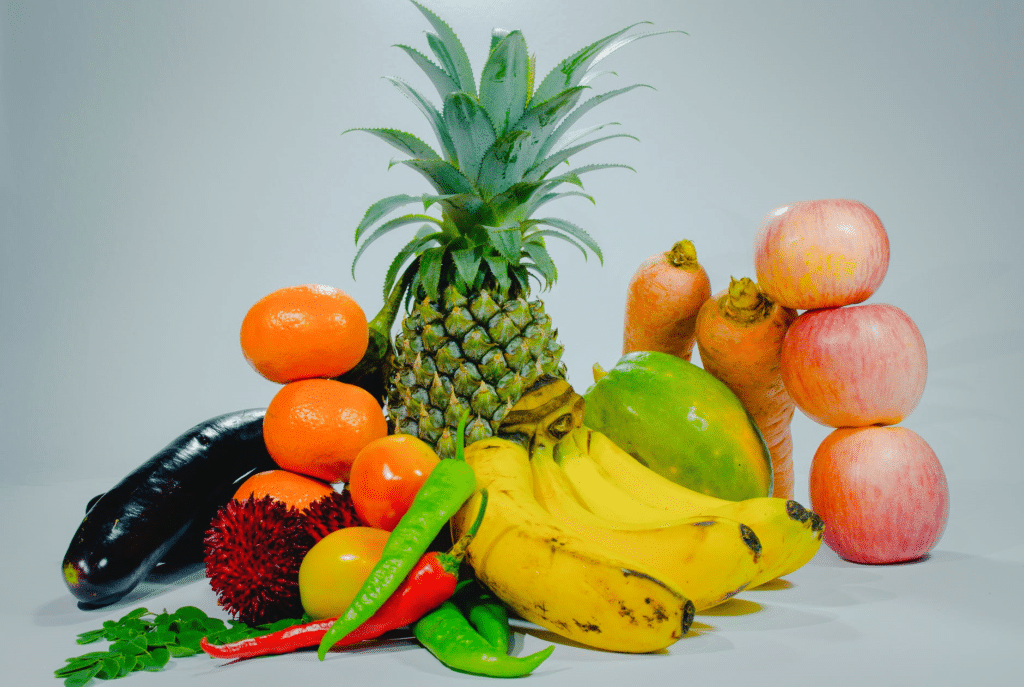09 Jun Diabetes Week – Fruit and Sugar
By Hannah Buckland – Healthy Hearts Care Planner
It’s Diabetes Awareness Week, so what better topic to talk about than sugar? Sugar has been labelled by the media as toxic, addictive and even poisonous; blamed for everything from bad skin and tooth decay to depression, weight gain, heart disease, type 2 diabetes and cancer. As a result, the topic of sugar has become quite emotionally charged and many people have become somewhat fearful of consuming sugar in any form. Whilst we are certainly not disputing the fact that an excess of free sugars can be harmful to your health, we want to highlight some of the complexities that surround this emotive topic. Specifically, we want to break down the idea that, because fruit contains sugar, eating fruit is bad for you.

The general public health message is to “eat less sugar”. What this really means, however, is “eat less free sugar”. Free sugars are any sugars added to food or drink products by the manufacturer, cook or consumer; including those naturally found in honey, syrups and unsweetened fruit juice. Unlike the sugar in fruit, free sugars are no longer found within the cell wall of the plant they came from. Our bodies therefore metabolise these sugars more quickly, meaning that they enter the bloodstream much faster. On the other hand, the sugars found in fruit are contained inside the cell structure of the fruit, which means that our bodies metabolise them more slowly and they take longer to enter the bloodstream. Fruit also contains fibre, which helps to slow the digestion and absorption of sugar. As such, the natural sugars found within a whole piece of fruit are not considered harmful, even for people with diabetes.

The fact is, almost everyone could benefit from eating more fruit. Fruit is packed with essential vitamins and minerals, as well as fibre – all of which are important for good health. In addition, many of the nutrients in fruit act as powerful antioxidants, protecting the body from harmful free radicals which can cause disease. The British Dietetic Association have found evidence that for every portion of fruit and vegetables eaten, there is up to 30% increased protection against heart disease and strokes, and up to 20% increased protection against some cancers. We therefore want to encourage you to eat more fruit, not to restrict it! The UK government recommendation is to eat 5 portions of fruit and veg a day. Currently, only about a third of the UK adult population are meeting this target. 1 portion is the equivalent of 80g of fresh, canned or frozen fruit or veg, or 30g of dried fruit. Remember, balance is key – eating too much of one type of fruit won’t be that beneficial to your health. Try to stick to the recommended portion sizes as much as possible and choose a variety of different fruits and vegetables. Top tip: frozen fruit is often cheaper than fresh and contains the same, or often even higher, nutrient content.
A quick note on fruit juice and smoothies. When fruit is juiced or blended, the sugar is released from the cell wall of the plant and becomes free sugar. This sugar is broken down much faster in your bloodstream than if you were to eat the fruit whole. For this reason, fruit juices and smoothies can only ever count as one portion of your 5 a day, no matter how many different fruits or vegetables they contain, and it is recommended to limit the amount you drink to just 150ml a day.
In conclusion, unless you have a medical reason to avoid fruit, such as an allergy, then you can (and should!) include fruit as part of a healthy, balanced diet. Why not try to add in an extra portion every day this week? We’d love to hear how you are finding creative ways to include more fruit in your diet– get in touch and let us know!
Interested to join one of our Healthy Hearts courses? Call us on 020 3434 2500 or click here.




Sorry, the comment form is closed at this time.